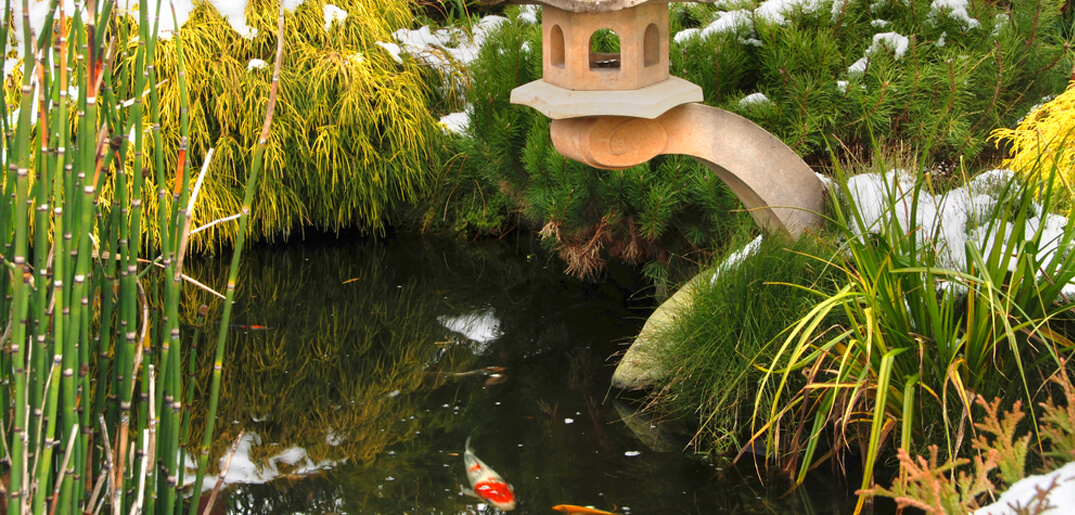A common question which is raised by those who are new to keeping koi is whether or not they sleep or hibernate. The short answer is yes, but it is important for pond owners to know how this occurs, why, and the dos and don’ts.
What Koi Dormancy Means
As winter approaches the days will become shorter. Both koi and other fish species will notice this, and transform into a state which is named torpor. This is a time in which their physiological actions will be reduced significantly, for the purposes of energy conservation. While the fish won’t sleep the entire winter, they will hibernate since their metabolism will slow down, which lowers their nutrient needs and body temperature.
Unlike humans, who make use of clocks and calendars to determine the seasons and when they begin and end, fish rely purely on instinct. They have cold blooded bodies which mean their metabolism is extremely sensitive to whatever environment they’re in. When the temperature of the pond water declines, so will their level of activity. They will also display a lower appetite and when they do eat the food will be digested slower, which prompts them to use less energy. Once spring arrives and the water temperature rises, koi will leave their torpor state and will begin looking for food due to their growing metabolism and activity level.
How To Tell When Koi Become Dormant
When fish enter a state of dormancy, they won’t always lie down near the bottom of the pond. Instead, they will float in a position upright, tucking their fins in while remaining suspended within the liquid. While hovering they will move, but it will be very slow, so much so that it can be difficult to detect unless you observe closely and for extended periods of time.
Your Responsibilities As A Koi Owner
There are a number of things you will want to do, and avoid, to ensure that your koi rest peacefully during winter and are not partially frozen. First, you will need to install the aeration system to ensure the water is rich in oxygen. Even fish which are in state of torpor still need O2 which is fresh, as they will succumb without it. Second, it is essential to setup a de-icer. The reason for this is because the surface water of ponds which are situated in northern habitats will almost always freeze over.
Therefore, a hole will need to be opened in the surface of the ice so that gases underneath can escape, otherwise the fish will die. At the same time, this cannot be done manually, as the fish will become distressed. A de-icer is a device designed to open a hole gradually and automatically, in a manner that doesn’t disturb the fish. Finally, during fall, before winter sets in, the pond water must be cleaned. Any leaves or muck which is on the bottom can also be removed using a skimmer; otherwise, their decomposition combined with the surface water freezing will have the fish trapped in an environment with toxic gases. Also, never wake the fish after they begin hibernating.


 Blog
Blog



